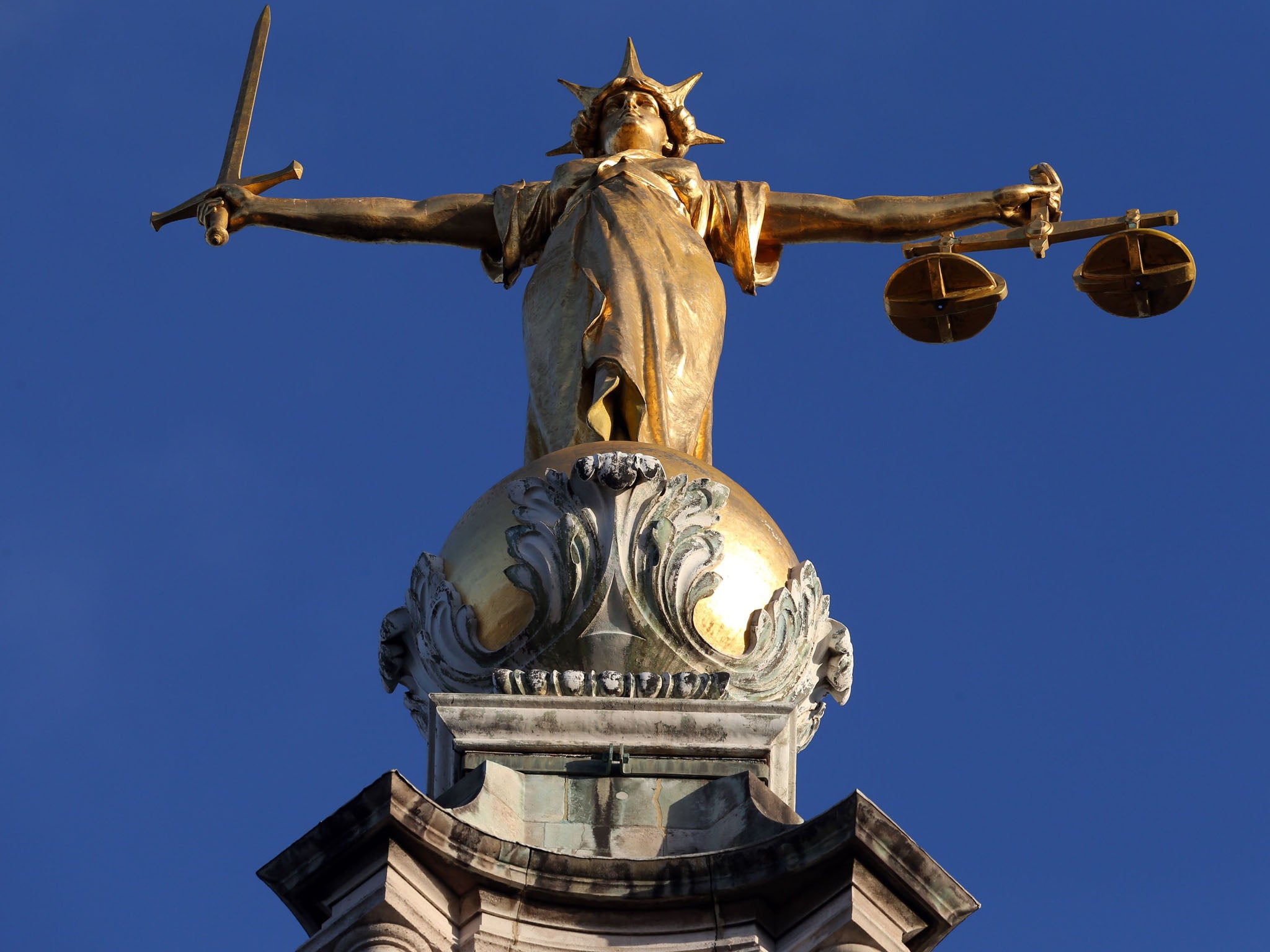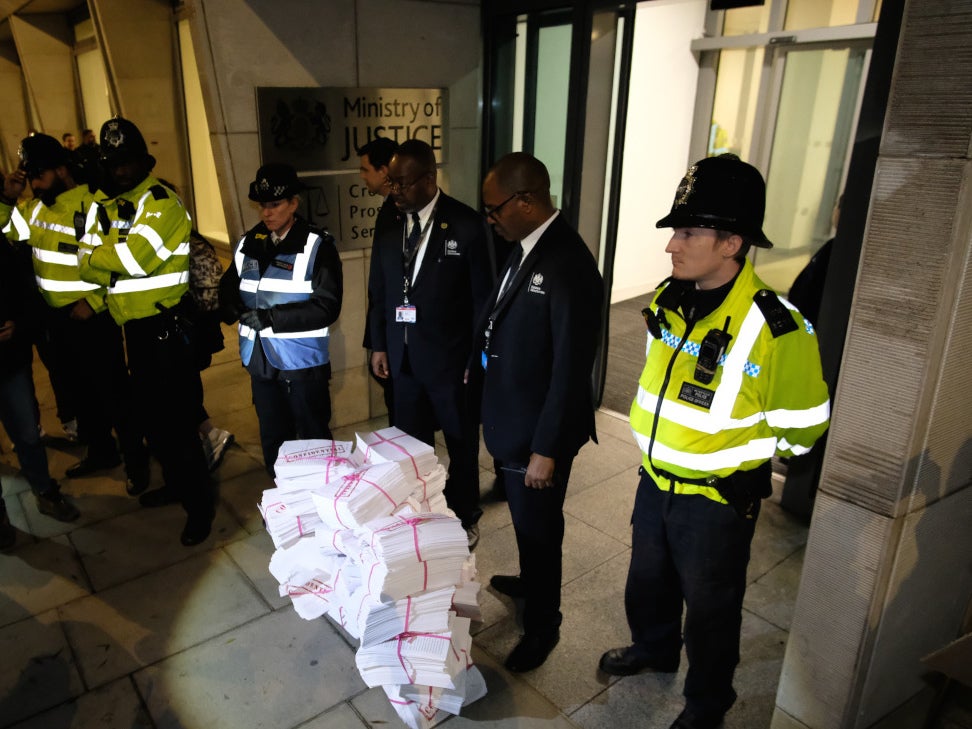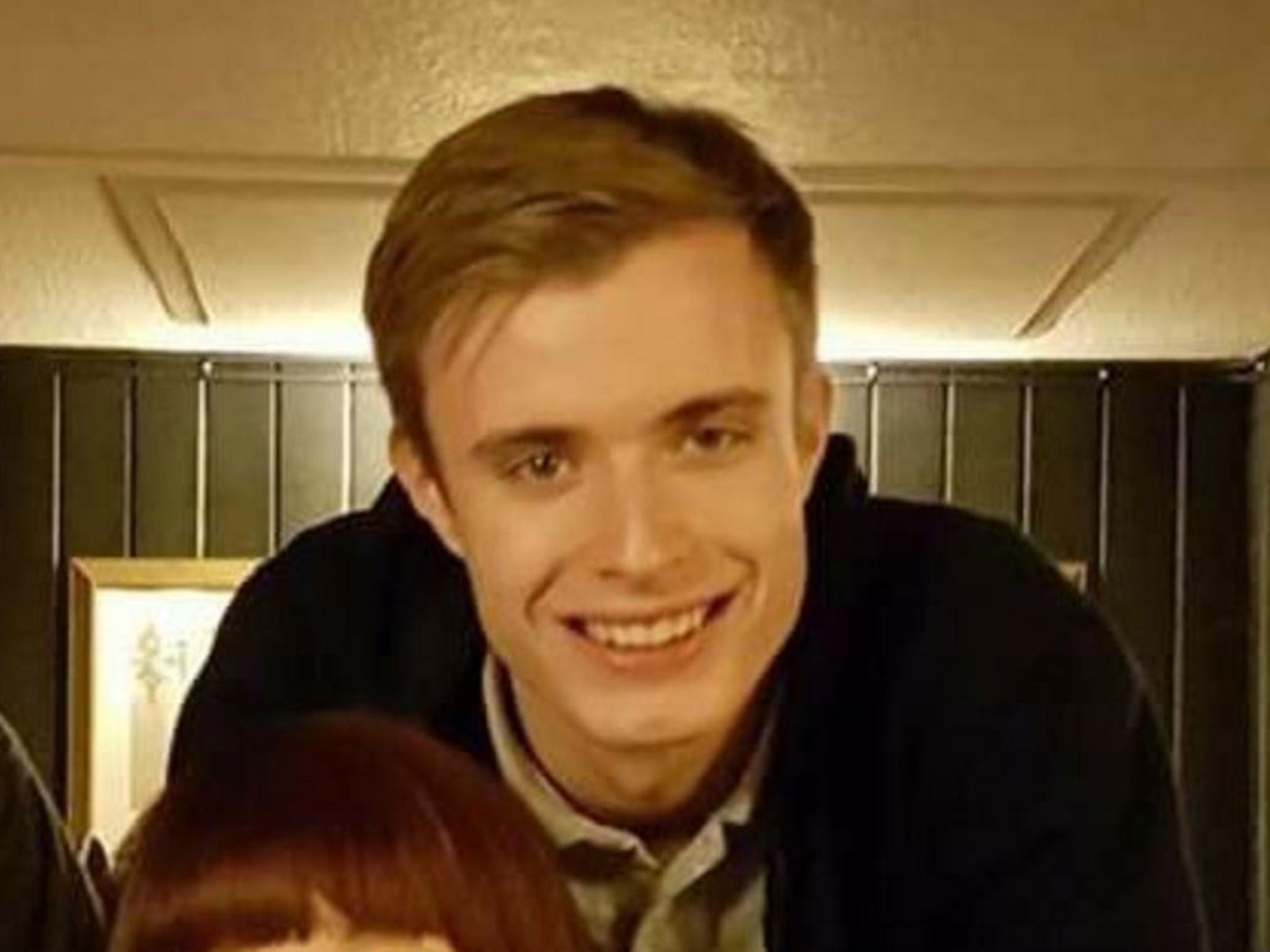Tory budget cuts driving down rape prosecutions, watchdog suggests
Calls for government to investigate ‘under-resourcing’ as 53,500 reported rapes not passed to prosecutors in a year

Government cuts could be driving down rape prosecutions after leaving the criminal justice system “close to breaking point”, a watchdog has warned.
HM Crown Prosecution Service Inspectorate (HMCPSI) said stretched police forces were taking months to investigate allegations and referring fewer for potential charges.
A report called for the government to investigate the impact of under-resourcing, after the proportion of reported rapes resulting in a charge fell to just 1.4 per cent.
Chief Inspector Kevin McGinty said: “There can only be an effective criminal justice system – and one in which the public can have confidence – if it is properly resourced.
“The one we have has been under-resourced so that it is close to breaking point. In the case of the police, it may have gone beyond that, and while that is for others to assess, the number of rape allegations lost in the investigative process is damning.”
Victims’ advocates condemned the report as an “insult” to rape survivors after it refuted claims that prosecutors were cutting weak cases of out the system.
The alliance of women’s groups has launched a legal challenge against the CPS that accuses it of covertly changing the way it prosecutes alleged rapists, but the authority denies the allegations.
Sarah Green, co-director of the End Violence Against Women Coalition, said: “The choice to actively commend CPS decision-making in the final report is too much, it is an insult to the many survivors of rape who have been so failed.
“Our judicial review of CPS failure in the prosecution of rape is clearly needed now more than ever as it may be the only way to get to the bottom of what is actually going on.”
Senior police officers have accused prosecutors of “raising the bar” for evidence required to take rapists to court, following a 2017 scandal over collapsed cases that sparked an overhaul of evidence disclosure.
But HMCPSI said prosecutors were correctly applying the code used for all crimes, which states that only those with a “realistic prospect of conviction” can proceed.
“Of the cases that have come to the CPS, our view is they are applying the test more accurately than when we last looked at this matter,” Mr McGinty told The Independent.
A 2016 inspection found that the CPS was wrongly applying the code in one in 10 cases, but the new report found the figure had fallen to 2 per cent.
“The CPS has been accused of only choosing easy cases to prosecute, but we found no evidence of that in our report,” Mr McGinty said.
“While the CPS needs to improve the way it works with the police, it is only a small part of a larger systemic problem in the criminal justice process in dealing with complex cases.

“More work is needed to investigate the discrepancy between the number of cases reported and the number of cases prosecuted. This is a matter for the government to consider.”
The report acknowledged that falling rape prosecutions were a “matter of serious concern”, saying that since 2016 the number had dropped by 52 per cent even as the allegations made to police rose by 43 per cent.
It suggested that the fault may lie at the investigation stage, after finding that the number of cases referred by police to the CPS had fallen by more than a fifth in the same period.
In 2018-19, 58,657 rape cases were reported but only 5,114 cases were passed on to the CPS, and 1,925 resulted in a successful prosecution.
The report said more victims were withdrawing during police investigations for reasons including stress, trauma, lack of information or the time it takes investigations to progress.
In sampled cases, it took an average of eight months after a complainant reported being raped for police to request a charging decision, which then took around 17 days.
HMCPSI named contributing factors including a “shortage of resources in the police” and backlogs in forensic labs responsible for examining evidence and digital devices.
The report found that lead officers were being taken off cases for training or other duties, and that a lack of specialist or senior officers after years of cuts was leaving complex rape investigations to inexperienced officers.
“There is evidence that there are changes in the landscape of how rape cases are dealt with by the criminal justice system, under-resourcing and communication between the police and CPS,” the report said.
“Notably, the police and CPS have both seen significant reductions in their resources. Rape and serious sexual offence units are undoubtedly stretched. In our survey, half of CPS managers said that their unit was not staffed to the level set by the organisation’s guidelines.”

Amid concern over rising demand for rape complainants to hand over their mobile phones and personal records, the report said phone examinations were taking up to a year to complete and some prosecutors were still asking for unnecessary downloads.
The watchdog’s findings form part of a wider review of the handling of rape cases throughout the criminal justice system, which will be published early next year.
The victims commissioner, Dame Vera Baird, said independent research by people “who will look outside of the CPS culture from the vantage point of victims” was needed.
“It’s harder to reach the [charging] threshold for rape but it’s been harder for the past 30 years, and there was a massive dip in prosecutions in 2016,” she told The Independent.
“They say the decision-making is OK but there are regional variations.”
Claire Waxman, London’s victims commissioner, said victims of rape “are being failed”, adding: “We need to transform the way the entire criminal justice system supports rape victims if we are to address historically low conviction rates.”
The National Police Chiefs’ Council said forces were under “huge strain” following years of cuts but that Boris Johnson’s promise to recruit 20,000 extra officers would ease the pressure.
Deputy Chief Constable Sarah Crew said: “The ongoing cross-government review of the criminal justice system’s response to rape will be crucial in understanding the problems across the system, and we are committed to using that review to make real and lasting improvements.”
A government spokesperson called the findings “deeply concerning”, adding: “We are conducting a full review of the criminal justice system’s response, recruiting 20,000 more police, giving £85m to the Crown Prosecution Service, creating extra prison places and making sure violent and sexual offenders spend longer behind bars.”
